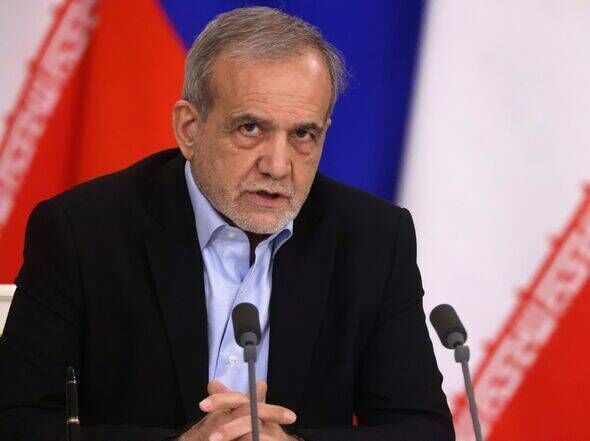
Iran’s President Masoud Pezeshkian has reported “severe damage” to the country’s nuclear sites following a series of US military strikes. In a conversation with political commentator Tucker Carlson, President Pezeshkian labeled the US actions as “illegal” and reiterated that Iran has never intended to develop a nuclear bomb. The strikes, conducted last month, targeted key nuclear facilities in Fordow, Natanz, and Isfahan.
Daryl G. Kimball, Executive Director of the Arms Control Association, confirmed the extent of the damage but clarified that the Iranian nuclear program was not completely eradicated.
“The attacks on the underground sections of the Natanz and Fordow uranium enrichment plants, along with the Isfahan uranium conversion facility, inflicted heavy damage but did not eliminate the program,”
Kimball noted.
Background and International Reactions
The airstrikes have intensified the already fraught relations between the US and Iran, with significant implications for global diplomacy. The US justified the strikes as a necessary measure to prevent Iran from advancing its nuclear capabilities. However, Iran’s leadership has consistently maintained that its nuclear ambitions are peaceful.
This development follows years of fluctuating tensions and negotiations over Iran’s nuclear program. The 2015 Joint Comprehensive Plan of Action (JCPOA), from which the US withdrew in 2018 under then-President Donald Trump, was an attempt to curb Iran’s nuclear activities in exchange for lifting economic sanctions. The recent strikes have further complicated efforts to revive the agreement.
Iran’s Response and Future Negotiations
President Pezeshkian indicated Iran’s willingness to resume discussions about verifying its nuclear program, after previously halting cooperation with the International Atomic Energy Agency (IAEA) due to the strikes. He acknowledged that Israeli aggression had undermined the negotiations Iran was conducting with the US but reaffirmed Iran’s readiness to permit oversight of its nuclear program.
In a statement, Pezeshkian said,
“We see no problem in re-entering the negotiations. There is a condition … For restarting the talks. How are we going to trust the United States again?”
He expressed concern about Israel’s trustworthiness in negotiations, questioning,
“We re-entered the negotiations, then how can we know for sure that in the middle of the talks the Israeli regime will not be given the permission again to attack us?”
Allegations of Assassination Attempts
Adding another layer of tension, Pezeshkian claimed that Israel had made an unsuccessful attempt on his life by bombing a location where he was attending a meeting. In his interview with Carlson, Pezeshkian alleged,
“They did try, yes. They acted accordingly, but they failed … It was not the United States that was behind the attempt on my life. It was Israel.”
He recounted the incident, saying,
“I was in a meeting … They tried to bombard the area in which we were holding that meeting.”
This is not the first time such allegations have surfaced. Former President Donald Trump previously acknowledged that Israel had planned to assassinate Supreme Leader Ayatollah Ali Khamenei, although the plan was ultimately thwarted.
Implications for Regional Stability
The recent strikes and subsequent allegations have raised concerns about regional stability in the Middle East. The potential for escalation remains high, with both Iran and Israel accusing each other of aggressive actions. The international community, particularly European nations, has called for restraint and a return to diplomatic negotiations.
Meanwhile, the Biden administration faces a complex challenge in balancing regional security with diplomatic engagement. The strikes have brought renewed attention to the US’s role in Middle Eastern geopolitics and its approach to Iran’s nuclear ambitions.
As the situation unfolds, the world watches closely for any shifts in policy or further escalations. The possibility of resuming talks under the JCPOA framework remains uncertain, but it is clear that the path forward will require careful negotiation and trust-building measures.







